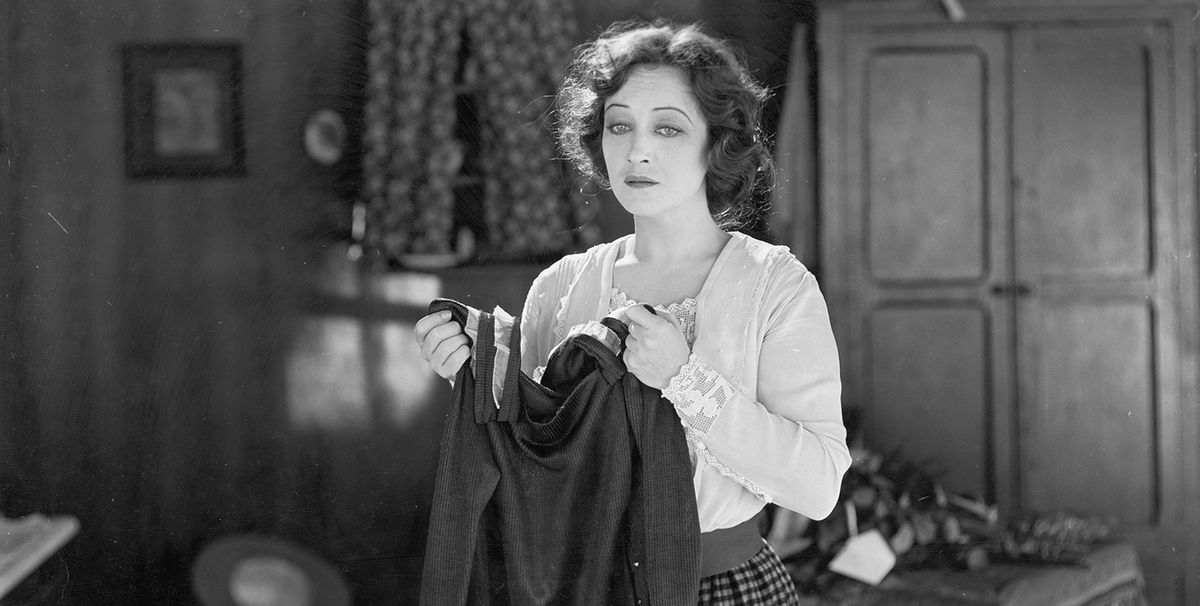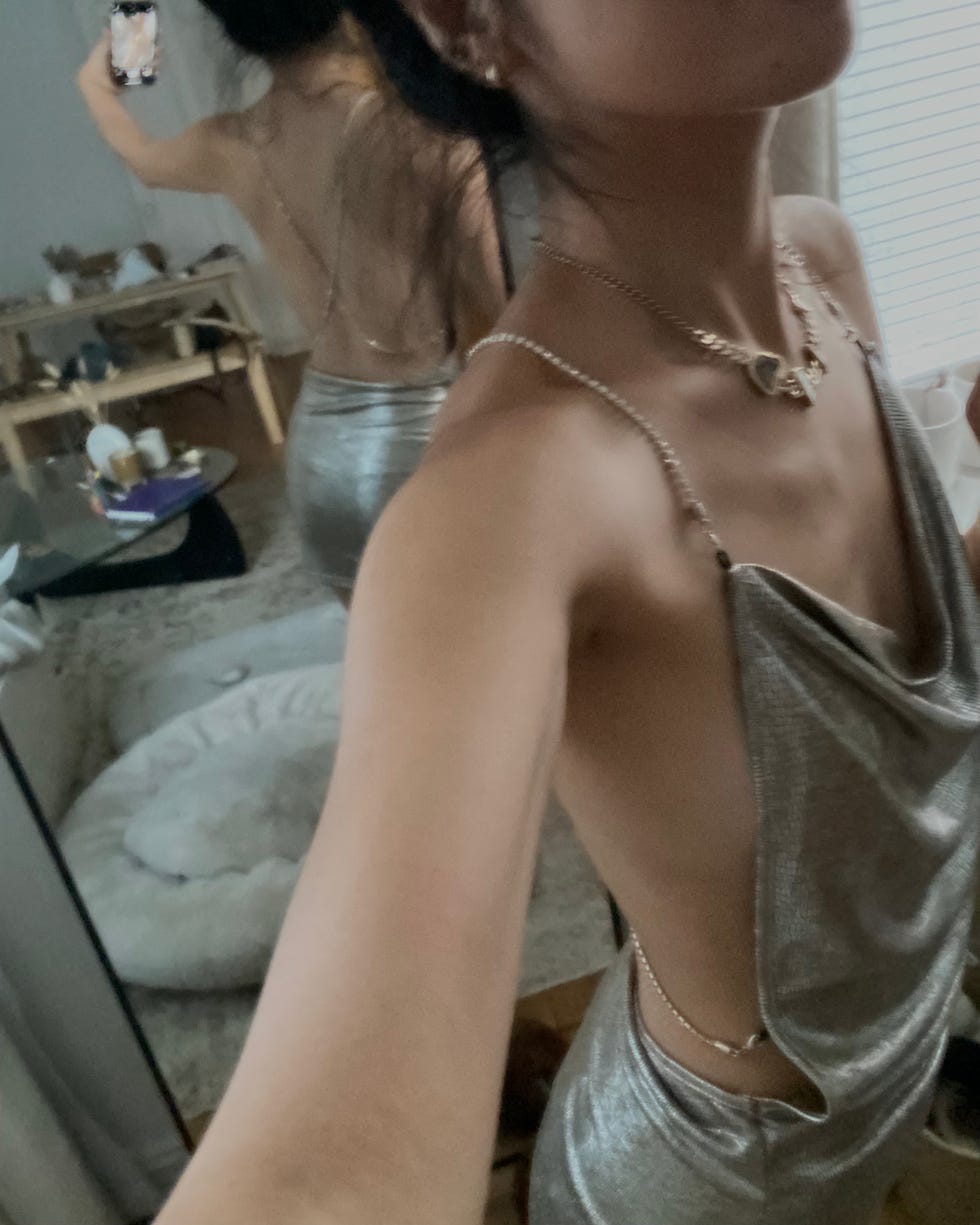Products You May Like
I didn’t get married anticipating divorce. Nor did I, a fashion and beauty editor, expect to find all my garments suddenly unwearable. Yet there I was, alone in my bedroom, with a wardrobe full of nothing I wanted to wear.
I wish I could tell you there was a big, explosive blowout, a tantalizing scandal, or a major red flag that festered or metastasized beyond the point of reconciliation, but the sad truth is that we grew apart. And as the chasm between us became too wide to bridge, it felt easier to separate gracefully than to force a lifetime together.
After a breakup, most people wax melancholic about the landmarks they frequented, once-cherished memories that become almost too painful, too unbearable to hold onto— anecdotal souvenirs that they wish they could scrub clean, Eternal Sunshine of the Spotless Mind-style. Remember how happy we were there and there and there? For me, those tales are told in threads: There’s the Only NY long-sleeve I bought, because it was one of his favorite brands; a J.Crew sweater he gifted me during one of our first holidays together; the vintage Thierry Mugler suit I snagged on one of our trips to San Francisco; the navy ruched dress I wore to his friend’s wedding; and then, of course, there was our own wedding—the Calvin Klein Collection dress I got custom-made for the big day. My closet felt like a gravesite, memorializing all these moments we had together, large and small.
We were together 11 years—pretty much all of my 20s and the entirety of my time in New York. When so much of yourself is tethered to one person, when both of your lives become entirely enmeshed, it goes without saying that it’s exceedingly difficult to extricate yourself when it’s over. We decided to separate in 2022 and officially filed for divorce a year later. Sartorially, I coped by not wanting to wear anything I owned—or anything at all. “I just want to be naked!” I declared to anyone who asked how I was doing. One point, last summer, I said this while wearing a translucent, mini slip dress with nothing underneath except a teeny-tiny bralette and an equally teeny-tiny pair of hot pants.
“Well, it looks like you’re nearly there,” quipped a friend, her eyebrows raised.
The psychology behind post-breakup fashion is intuitive to grasp: A change in appearance, whether it be a haircut or your entire sartorial outlook, is a way to demarcate the end of one chapter and the start of another. You get a clean slate without having to wait to ring in a new year.
The most popular term that gets thrown around in reference to this is “revenge dressing.” (See: Princess Diana and her little black dress.) But I don’t believe that revenge dressing—or in my case, revenge un-dressing—applies here. “People get divorced for different reasons,” says Susan Weiss, LCSW (and, full disclosure, my therapist). “Princess Diana was rejected for another woman, and she was demeaned in every way, so she was making a statement: ‘I’m getting back, I’m showing all of you.’” Weiss continues, “Everybody’s marriage is different. I think the way you dressed paralleled the mood in your marriage. And when you decided, I’m going to go through with this divorce, I think you were liberated.”
I want to make it absolutely clear: I wasn’t in an unhappy marriage, or a bad one for that matter. But in many ways I felt stuck and unseen. It’s hard to discern why I chose to dress the way I did—how does anyone? Pinpointing the reason can be as elusive as attempting to define a nebulous concept like love. The intricate makings of personal style are akin to hand-stitching fine lacework. Fleeting and abstract, so much of piecing together an outfit is based on a feeling. So for me to say I dressed all in black because I was in a sad marriage is reductive, and also wrong.
But I can say that I largely gravitated toward a restrained color palette. In my 20s, during a time when I was trying to prove myself as a writer and editor in a notoriously unkind, unforgiving industry, I wanted people to take me seriously, so I wore somber colors and modest styles—so modest, they bordered on puritanical. There was a period where hemlines hardly ever hiked higher than my shin. And those ankle-grazing skirts were often paired with baggy sweaters, oversized button-downs, or turtlenecks. My approach to fashion was austere, all clean lines and rigid, stark, minimalist silhouettes; I thought those were the trappings of Good Style. And anything outside of it (color, embellishments, skin-exposing cutouts) I considered frivolous and, quite frankly, gauche, and thus Bad. In retrospect, I imagine that a part of me wanted to hide behind my clothing.
And that inadvertently bled into how I dressed outside of work—or perhaps, it worked in tandem. My ex and I were both so focused on our careers that in our downtime together, we did nothing. I’m not entirely sure when things between us got to be so serious, but it reached a point where every moment, every activity, every conversation felt laden with an inexplicable weight. Spending time together was like wading through molasses, impossibly tough and tiresome. How I so badly wished there was lightness or laughter or joy, but what was missing was too blatant to ignore, despite how much I cared about him. And so, there was no desire to dress up. I hardly wore makeup. My nails were rarely painted. Apathy masqueraded as comfort. I combed through my closet recently and tried on a dress I wore B.D. (Before Divorce). I was aghast at how shapeless it was, how much fabric there was, how blah and invisible I felt in it.
Ripping our lives apart was a gut-wrenching process. Heartbreaking. A big part of why I held onto my marriage was because I had an all-consuming fear of starting over, which isn’t a good reason to stay in any relationship. But now, as a no-longer-married person—for the first time in over a decade—I’ve embarked on the long, unrelenting road of figuring out who I am, like Julia Roberts determining how she likes her eggs in Runaway Bride.
“Although the word divorce is often viewed as sad in one’s life, it can also be freeing. In a dysfunctional marriage, we can lose our sense of self and our own identity. And we may become very stifled in our creativity and growth,” Weiss says. “So post-divorce can offer an opportunity to explore different sides of ourselves. And fashion is the perfect outlet to show those changes.”
While I might want to parade around naked, the law—and common decency—forbids it. Instead, I’ve made some purchases: a vintage, cowl-neck metallic mini reminiscent of 2002 Paris Hilton, a collection of truncated tanks, a strappy bandeau, a curve-hugging mesh dress with up-to-there slits, and a two-piece sequin set. A friend called my new look “very Gen Z.” So many others have expressed their surprise. “That doesn’t seem like your style at all” has been the common refrain. Another said it looked like I was going through a midlife crisis, that maybe I should dress my age.
A part of me feels like I’m flailing, like I’m unsure of my footing and stumbling around like a toddler learning how to walk; another part exudes a level of confidence I haven’t felt in so long, maybe ever. For the first time, I’m experimenting with my style, no-holds-barred, and dressing in a way that makes me feel desirable, even pretty. There’s also the possibility that all of this coincides with just growing older and finally feeling comfortable in my skin.
For now, I’ll hold onto what delights me: itty-bitty midriff-exposing tops, micro hemlines, and see-through everything. Finally, these clothes have started to make my closet feel like mine again.


